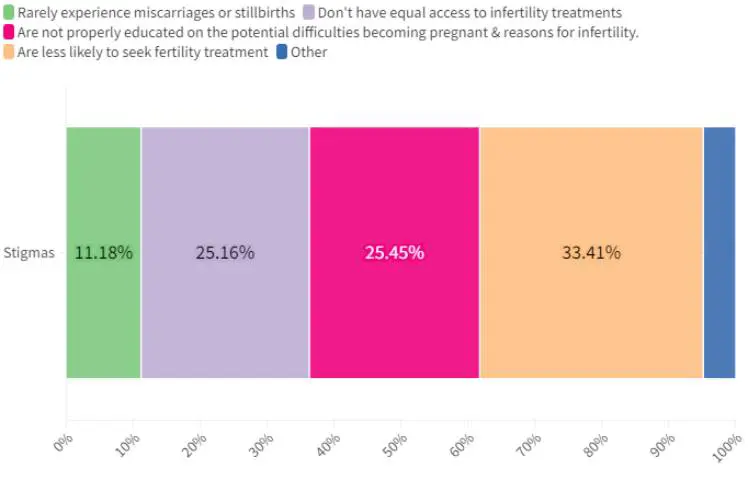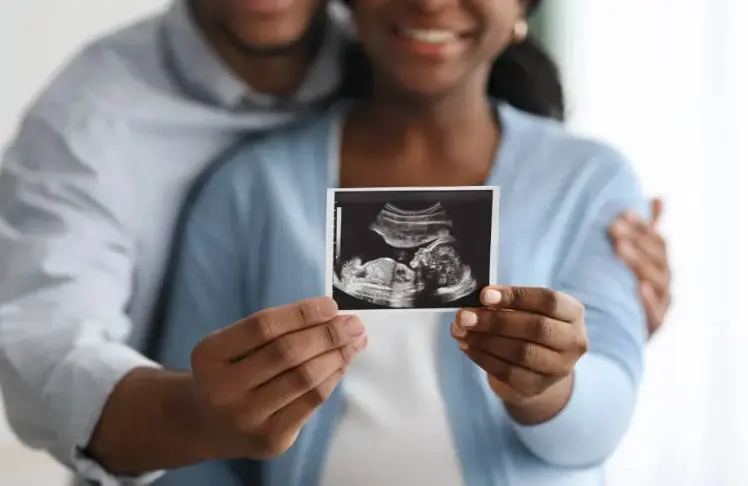
Long-held stereotypes, medical bias, and stigma have convinced society that Black people don’t deal with infertility. Unfortunately, this type of medical misinformation has also convinced healthcare providers and Black couples. But their assumptions are far from the truth.
A new report by CCRM, a leading fertility clinic network spearheaded by Dr. Stephanie Marshall Thompson, found that Black men and women are not immune to fertility issues. Dr. Thompson, a reproductive endocrinology and infertility specialist, surveyed 1,000 Black individuals about their experience for the Black Fertility Matters survey, conducted after the launch of the Black Fertility Matters Fund in May.

The report cites the long-held belief that Black women are fertile, the misconception that Black people have lots of babies and a historical lack of education as factors that have prevented folks from getting accurate information and access to care.
Of the more than two dozen questions respondents were asked; Thompson says she wasn’t surprised by the responses. With 18 years of experience, she says the goal was to validate what she has seen with her patients.
The report finds that nearly 55% of respondents think there are stigmas surrounding Black individuals and infertility. The most selected answer was that Black individuals are less likely to seek fertility treatment.
In a survey of 1,000 Black men & women, 55% say there are stigmas surrounding Black individuals and infertility
Citing less likely to seek fertility treatment as the most common stigma

Thompson says the belief that Black women are fertile is rooted in slavery. Enslaved women were raped to breed more children so slaveholders could replenish their labor. Those stigmas persist in health care settings, when Black women are dismissed for struggling with fertility issues or physicians assume it’ll be easy to get pregnant.
An Added Layer of Stigma
“I think as a community we don’t talk about infertility. We don’t talk about attempts to get pregnant and miscarriage,” Thompson says. “It goes back to this narrative that Black women are supposed to be fertile … we’re supposed to be strong; we’re not supposed to face adversity. We’re supposed to be superwoman.”
What people don’t realize is just how difficult it is for most women to get pregnant, Thompson says. A woman’s peak reproductive years are between the late teens and late 20s, according to the American College of Obstetricians and Gynecologists.

And it’s not just women who struggle with fertility issues. Of the men surveyed, nearly 20% struggle with infertility. Common causes of male infertility include low sperm production, abnormal sperm function, or blockages that prevent the delivery of sperm, according to the Mayo Clinic.
The narrative of Black male masculinity deems them to be virile, overly sexual, and promiscuous — these stereotypes are rooted in slavery where Black men were forced into sexual relationships. Generational traumas have impacted the way Black men view their masculinity and ability to have children.
Whether you struggle with fertility issues or not, it’s important to know where to turn to for information. With so much misinformation found online, Thompson says turning to reputable websites is key — and folks should be careful of podcasts, blogs, and Reddit.
CCRM asked respondents where respondents go for information. The top answers were WebMD, HealthLine, and What to Expect, all of which Thompson cites as reputable sources. The Black community is disproportionately impacted by chronic illness that makes it even more difficult to get pregnant, Thompson says. This is why it’s important to acknowledge the experiences of Black men and women in their fertility journey.
“We don’t need to suffer in silence. We don’t need to suffer alone,” Thompson says. “We need to be seeking support systems.”















